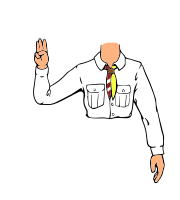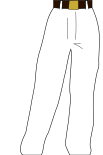Organisation of Bulgarian Scouts
The Organisation of Bulgarian Scouts (Bulgarian Организация на българските скаути, Organizatsia na Bulgarskite Skauty), the primary national Scouting organization of Bulgaria, became a member of the World Organization of the Scout Movement in 1999; work towards World Association of Girl Guides and Girl Scouts membership recognition remains unclear. The coeducational Organisation of Bulgarian Scouts has 2,109 members as of 2011.[1]
| Organisation of Bulgarian Scouts | |||
|---|---|---|---|
 Организация на българските скаути | |||
| Country | Bulgaria | ||
| Founded | 1995 | ||
| Membership | 2,109 | ||
| Affiliation | World Organization of the Scout Movement | ||
|
| |||
| Website http://www.scout.bg/ | |||
    | |||
History
Birth of Scouting in Bulgaria, 1911 - 1938

The first notice of Scouting in Bulgaria started as early as 1911. General Nikola Zhekov, commander of the 1st infantry regiment, received information about the emerging youth movement and remained fascinated by the method of out-of-school boy training. Thus, excited by what he saw, he made the first attempts to implement it around the country. At Zhekov initiative under his direct leadership the first Scout troop was formed in Sofia.
The Balkan War broke out so every step to develop Scouting for the next few years stopped. In 1915, more people in the country became interested like Colonel Y. Velchev, who received mainly on translation materials as well as issued a memorandum of the earlier Scouts who responded to many of the questions he was looking for. The country fell in a deep crisis due to its participation in World War I, so it was imperative an attempt to motivate new generations build a Scout organization. The years of World War I and the following ones were severe, Bulgaria suffered a deep crisis affecting statehood and society. A large percentage of children were involved in production to help feed their families, malnutrition and dead dramatically increased among young people. Child crime was also a big issue. In order to improve the situation of the young generations, a number of youth movements and organizations were emerging like Red Cross, various religious, cultural organizations and Scouting too.
Under the influence of White Russian emigrants and their experience with the Russian Scout organization, the first Scout units in Bulgaria were established. The Scout's seed had finally been sown. In 1921 under the leadership of an English Scoutmaster, Mr. Michael Wells, an Englishman of Russian service, the first troop of Scouts was founded in Varna. It includes Russian emigrants children mostly, the chief executive of the troop is the Russian emigration general Smedrov.
On September 28, 1922, a troop was founded in the American Boys High School in Samokov under the leadership of Pavel Roland, Scoutmaster and director of the high school, and teacher Iliya Mutafchiev. The troop had 30 boys, divided into three patrols - "Leo", "Wolf" and "Flying Eagle". The Scout idea quickly spread across the country. In the same year, the Russian emigrant Scouts founded its own troop in Sofia. Gradually, Bulgarians are also included. Under the patronage of the reserve Colonel Petar Trayanov the Bulgarian boys, members of the Sofia Russian Scout Troop, separated into their own troop. The first Bulgarian Scoutmasters to develop Bulgarian Scouting aims were Dimitar Dimitrov and Stefan Yanchulev.
From these first sprouts in Varna, Sofia and Samokov, the Organization of Bulgarian Young Scouts (Организацията на българските младежи разузнавачи - ОБМР) was founded in 1923.
In the second half of 1924, ОБМР was recognized and admitted as a member of the World Bureau of Boy Scouts, based in London.[2]
In 1929 the Boy Scout movement in Bulgaria had in this short period made rapid progress. There were 180 troops in Sofia and the larger towns in the Provinces, with 4040 registered members.[3]
Since 1932 there was a totalitarian drift and the Scout Movement suffered the attacks of power to force a merger into a single state youth organization on several occasions, without success. In 1940, with a brief letter to the International Scout Office in London, the leaders of the ОБМР reported on their self-dissolution, forced by the Ministry of War, General Hristo Lukov, and his assistant Colonel Svetoslav Akbarov. Officially Bulgarian Scouting was disbanded.[4] Since then, the ОБМР began its transformation towards a militarized state youth organization. On December 29, the 25th National Assembly passed a law on the organization of Bulgarian youth in a state organization that would later become "Brannik."
Scouting was outlawed after the war as well, when communists controlled Bulgaria. Scout resources during the communist period were confiscated and redistributed to the Pioneri and the chavdari of the Dimitrovist Pioneer Organization "Septemberists" for communist youth.
Rebirth
Scouting resumed in 1989 when the Berlin Wall was taken down, but it did not meet WOSM requirements for membership until 1995. The negative legacy of the Communist youth organizations contributed to slow growth of the Scouting movement, as it left the Scouts ill-equipped and without experienced leadership or established programs.
The Organisation of Bulgarian Scouts was accepted into the World Organization of the Scout Movement on January 17, 1999 as its 151st member, given an official welcome to WOSM at the World Scout Conference in South Africa on July 25, 1999. There are 57 Scout groups spread through Bulgaria, including in 20 of the largest cities and towns, with a membership of approximately 2,000. Sea Scouts are present in the city of Silistra, located on the Danube River, and on the Black Sea. The organization is volunteer-run. The Organisation of Bulgarian Scouts is open to both males and females. Bulgarian Scouts are well-publicized in their country and active in community development, including participating in projects related to reforestation and the Bulgarian Red Cross. They have an annual national Jamboree.
The Bulgarian noun for a single Scout is Скаут.
Program
- Cubs are 7 to 11 years of age
- Scouts are 12 to 18
- Rovers are 18 to 35
Ideals
Motto
Scouts - Be Prepared
Sea Scouts - Love the Sea
Scout Oath
Pred chestta si obeshtavam, che shte se staraja spored silite si:
Da ispulnjavam dulga si kum Boga I otechestvoto, da pomagam vinagi na drugite, da spasvam sakona na Skauta.
I give my word of honor, that I will do my best:
To do my duty to God and to the fatherland, to help others at all times and to obey the Scout Law.
Scout Law
- Scautut e chesten I dostoen sa doverie
- Scautut e predan na Boga, Otechestvoto, obshtestvoto i semejstvoto si
- Scautut e dluzen da bude polesen i da pomaga na drugite
- Scautut e prijatel na vsichki i brat na vseki drug Scout
- Scautut e vezliv i etichen
- Scautut e prijatel na zivotnite i opasva okolnata sreda
- Scautut projavjava chustvo na uvagenie
- Scautut e vesel i sas visok duh
- Scautut e pesteliv i opazva chastnata i obshtestvena sobstvenost
- Scautut e chist vav mislitr, dumit i delata si
- A Scout is honest and trustworthy
- A Scout is loyal to God, the fatherland, society and his family
- A Scout's duty is to be useful and to help others
- A Scout is a friend to all and brother to every other Scout
- A Scout is courteous
- A Scout is kind to animals and protects the environment
- A Scout is respectful and obedient
- A Scout is cheerful and has spirit
- A Scout is thrifty and respects all property
- A Scout is clean in thought, word and deed
Emblem
The membership badge of Organisation of Bulgarian Scouts incorporates the Cyrillic letters О-Б-С (O-B-S).
References
- "Triennal review: Census as at 1 December 2010" (PDF). World Organization of the Scout Movement. Archived from the original (PDF) on 8 May 2012. Retrieved 2011-01-13.
- Keesing's Contemporary Archives, Keesing's Limited., 1937, p. 2725.
- Bulgarian British Review, Council of Bulgarian-British Association, 1929, No. 13.
- Scouting Around the World, Facts and figures on the World Scout Movement, World Organization of the Scout Movement, Geneva, Switzerland, 1990, ISBN 2-88052-001-0 p. 150.
- Information derived from reports of Thomas N. Turba, International Representative of the Indianhead Council, Boy Scouts of America in Saint Paul, Minnesota, who led Scout contingents from Minnesota to Bulgaria in 1993 and 1995.